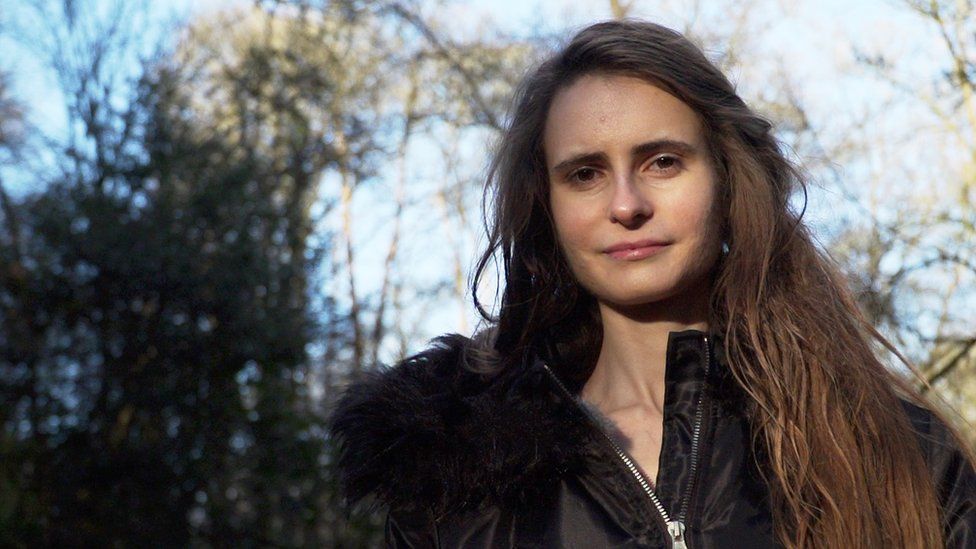Autism-anorexia link 'must be acted on'
- Published

The NHS must change the way it assesses eating disorders to take account of a link with autism, a research charity has said.
Autistica said findings suggested one in five women presenting to UK clinics with anorexia may also have autism and tailored therapy was vital.
One woman said her autism had made her "obsessed" with counting calories, even though she did not want to lose weight.
Health watchdog NICE said more research was required.
Sophie McInnes, 24, told the BBC's Victoria Derbyshire programme her anorexia had developed not from issues surrounding body image or weight but because she had developed a set of rules for herself about how many calories she could eat.
She said she had wanted to put on weight but her autism - at that stage undiagnosed - had meant she would not let herself.
"It was all about the calories, all about the numbers," she said, having begun to write down what she was eating aged 19.
"I actually admitted myself into the eating disorder unit because I had started exercising a lot and I wasn't eating anything.
"They put me in a wheelchair and said my weight was so low that if I didn't eat, I would need to be sectioned."
Eventually, Sophie left the unit but she continued to struggle to gain weight.
It was only several years later, in 2018, that she was diagnosed with autism.
Had the link been spotted sooner, she said, it would have helped her recovery.
"It's just taken away a big chunk of my life so far, and I want to move on," she said.
More research needed
Autistica's director of science, Dr James Cusack, is calling for new guidelines from the National Institute for Health and Clinical Excellence (NICE) to reflect this.
He pointed to three separate studies carried out in 2015 and 2017 that suggested 15% of women with anorexia also have autism.
The South London and Maudsley NHS Trust's Eating Disorder Service, a leading UK clinic, said almost 35% of its patients have autism.
Currently, the NICE guidelines on eating disorders do not contain any mention of the condition.
"We also need more NHS services involved in research," Dr Cusack said, "both informing studies and carrying out trials in eating-disorder care settings."
His proposal has the backing of former Health Minister Norman Lamb.
The Lib Dem MP told the Victoria Derbyshire programme it was "vital" that practice caught up with research.
"We may well be applying inappropriate care to women with both conditions," he added.
NICE said in a statement that it recognised factors such as autism needed to be taken into account with regards to eating disorders, but there was currently "very little" evidence on whether the intervention of health professionals needed to be modified in such cases.
NHS England has been approached for comment.
Will Mandy, a leading autism researcher, from University College London, said part of the issue was that women and girls were much less likely than men to be recognised as having autism in the first place.
And he believes that the "high levels of stress and anxiety" caused by the condition going undiagnosed in childhood and adolescence can contribute to people experiencing severe mental health conditions, such as eating disorders.
Recognition among health professionals of the autism-anxiety link was key, he said.
"If you don't know somebody is autistic, it becomes quite hard to help them and to adapt treatment to being autistic," Mr Mandy said.
A tailored approach can include simple changes, such as making communication easier and the environment friendlier.
Caroline Norton, from South London and Maudsley NHS Trust's Eating Disorder Service, said its autistic patients might have one-to-one sessions - to remove the noise of others in the same space - where they learned to make food with a dietician.
Healthcare professionals can also try to make patients more comfortable.
One of the service's former patients, Ms Norton said, would hardly communicate with the therapist face-to-face but would instead send a long response via email shortly after the session - so they learned from this.
"It's about meeting the individual at the level that they need," she added.
- Published25 February 2019
- Published25 February 2019
- Published26 February 2018